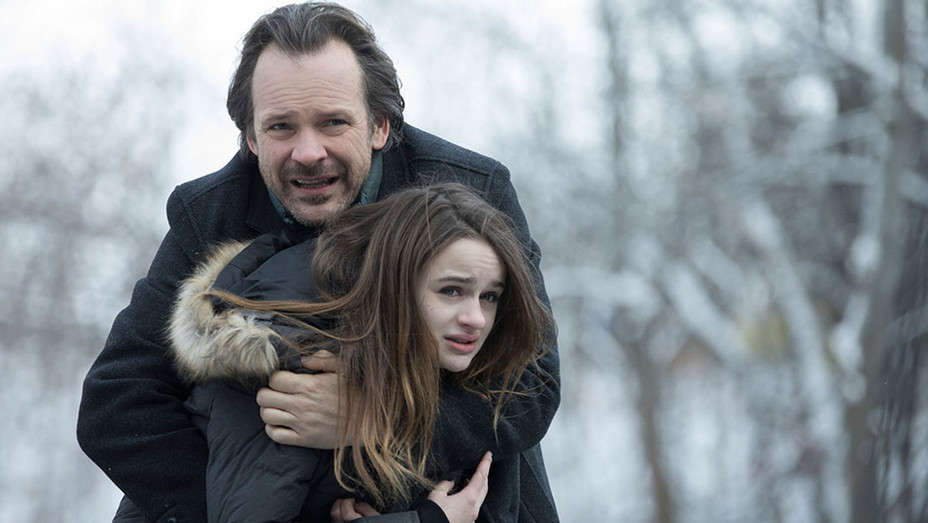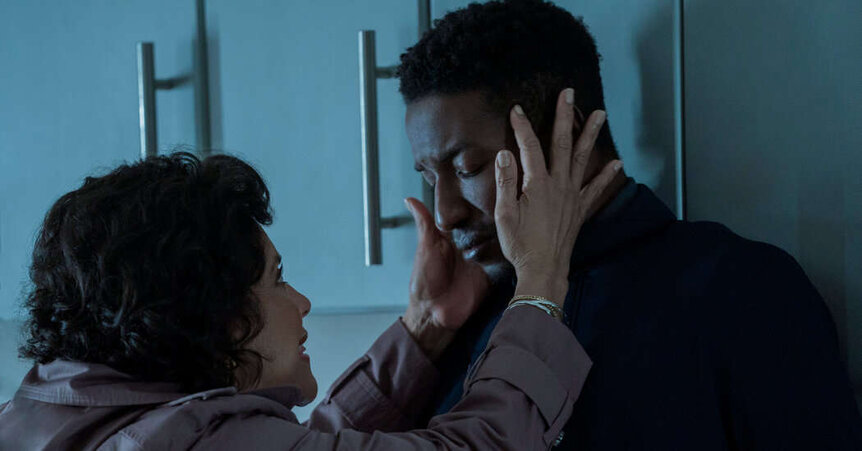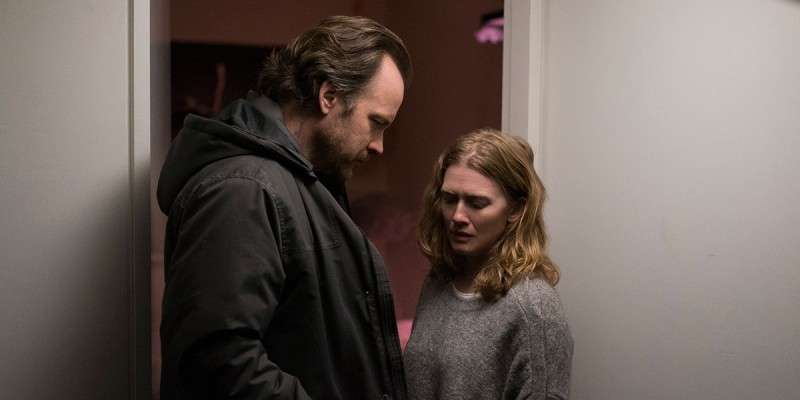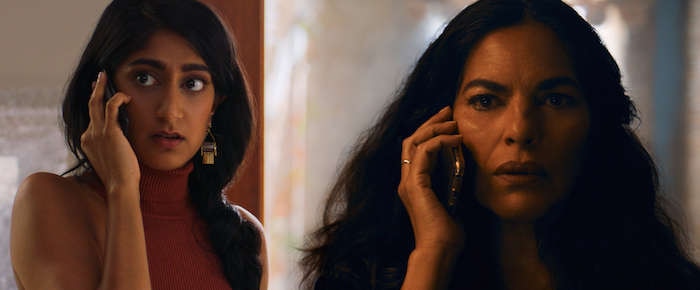Create a free profile to get unlimited access to exclusive videos, sweepstakes, and more!
Black Box, The Lie, and Evil Eye take on parental love

I've always had a soft spot for horror movies and the occasional psychological thriller that focus on parent-child relationships. These relationships can be extremely complex and test the limits of what it means to love someone. When I was younger, some of my greatest fears stemmed from worrying about my parents' well-being. Even as an adult, I still hold on to these same fears, but now as a parent myself, a new source of those fears and worries are rooted in concern for my child. I often wonder how far I'm willing to go to protect them and how my love could cloud my judgment. When does the parent-child relationship go from healthy to toxic, and what does that mean for both parent and child?
New to Blumhouse Television this fall are three movies — Black Box, The Lie, and Evil Eye — that offer varying takes on the depths parents will go to in order to protect their children.
Spoilers for Black Box, The Lie, and Evil Eye within.
Parents may believe their intent is good, but that doesn't mean their impact will always yield positive outcomes or that it won't cause harm. Slasher films often have antagonists with parents who are actually just as terrible, if not worse than the monsters they've raised. The parents in Black Box and The Lie may not have children who are routinely killing teenagers at sleepaway camp or committing murder by chainsaw, but they're still pretty damn terrifying in their own way. The apple doesn't fall too far from the tree.
Lillian, from Emmanuel Osei-Kuffour Jr.'s Black Box, isn't necessarily in the same class of deranged mother as Pamela Voorhees, but she is damn near close. Lillian is a neurologist who is too brilliant for her own good, but she's also a mother who loves her son Thomas beyond measure. Thomas, however, is abusive toward his own family, and not a good man. And when you combine a mother's desperate love with the psyche of an abuser, we see just how terrifying things can get. In the process of bringing her son back from death, Lillian almost ruins the life of a single father named Nolan after a car accident leaves him brain-dead and kills his wife. His story would have tragically ended there, but when Lillian gets ahold of him, he becomes a hazy thought in his own mind. That's because Lillian uses Nolan's seemingly vacant mind to implant her son's consciousness. When Nolan (or rather Thomas, wearing Nolan's face) seeks her out to help with his memory loss, we find out the horrific truth about not only what Lillian did but also who Thomas is and how he died in the first place. Lillian's love for her son wouldn't allow her to see how much of a monster he was and the fact that his actions were why he ended up dead in the first place.
She not only supported Thomas, but had total disregard for Nolan's body or the safety of her estranged ex-daughter-in-law and granddaughter. Do you know how demented it is to want to bring someone else's nightmare back to life after they'd finally got free of it? Then on top of that, to have no regard for the daughter and brother-in-law of the man whose body you've stolen. You've also put a young girl's life in danger by putting a stranger in her father's body, and adding to her trauma because it's as though she's lost two parents because her father doesn't know her. Even if Thomas weren't some abusive piece of trash, Lillian's crossing the lines would still be unjustifiable. Her enabling behavior didn't even yield to death.
The parents in Veena Sud's The Lie take being an enabler while your child is still alive to disturbing heights. Rebecca and Jay wrestle with the consequences of their teenage daughter's lethal actions against her friend and more than prove how far some parents would go to protect their child. Like Lillian in Black Box, Rebecca and Jay's actions are selfish and have little to no regard for anyone else's lives but their daughter's. What makes their actions more unnerving than Lillian's is that they can protect their child using real-life advantages afforded to them as upper-middle-class white parents. They leverage their white privilege and rely on racism to do most of the dirty work. Rebecca uses her connections with the police department to steer the narrative away from her daughter and place it on the friend's father, a man of color. It's not like she has to work really hard to instill that idea that takes the heat off her child, thanks to racism. Both Rebecca and her ex turn into ID Channel amateurs and killers to cover up for their daughter.
In Madhuri Shekar's audible play turned movie Evil Eye, Usha Karti (Sarita Choudhury) had the purest intent of all, but even her attempt to protect her daughter almost ended up costing them both of their lives because of truths left untold. The most healthy parent-child relationships aren't immune to negative effects from a parent's love for their child. Sometimes as parents, we think keeping our children from the horrors we've faced ourselves will somehow keep them free of ever experiencing the same trauma. Usha's obsession with her daughter finding a suitable husband had more to do with her fear of her daughter ending up with someone who was just as violent as the ex who almost killed her when she was pregnant. It's understandably why Usha didn't want to share what happened to her with her daughter, and why she overcompensated with concern for her daughter's love life as though it would somehow prevent the same thing from happening again. It was still selfish in nature, but out of all the parents, the most redeemable. While you could never actually prepare for your abusive ex getting reincarnated as the man who gets engaged to your daughter, you could prepare her for the uglier sides of life by sharing your encounter with it.
The parents across all three films were reluctant to accept their children being their own person capable of being and doing things well outside of what they could ever have imagined for them. It's sometimes a hard reality to come to terms with — because as much as you want to be responsible for all the good they do, you will also feel just as guilty when it comes to their failings. No matter how much you want to protect your child, you can only do so much, and sometimes going above and beyond can have some pretty terrifying repercussions.





























